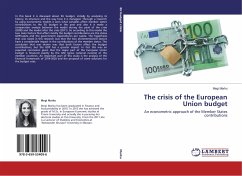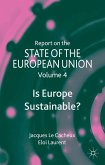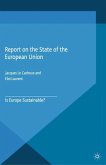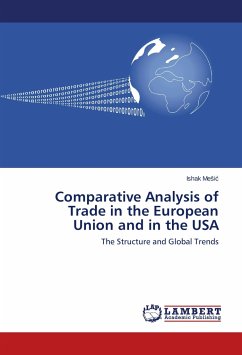In this book it is discussed about EU budget, initially by analyzing its history, its structure and the way how it is managed. Through a research by using econometric models is seen what variables affect member states' contributions to the EU budget in the past and also it is made a comparative analysis between the model during the peak of the crisis (2008) and the model after the crisis (2011). So according to this model the two main factors that affect mostly the budget contributions are the states GDP/capita and the government expenditures per capita. The hypothesis that was raised in this research was that the two aforementioned factors have a considerable impact in the contributions of the member states. The conclusion that was drawn was that both factors affect the budget contributions, but the GDP has a greater impact. In fact this was an expected conclusion given that the major part of the European Union budget is financed exactly by the GNI (gross national income) of themember countries. An important part of this study is the analysis of the financial framework of 2014-2020 and the proposal of some solutions for the budget crisis.
Bitte wählen Sie Ihr Anliegen aus.
Rechnungen
Retourenschein anfordern
Bestellstatus
Storno








